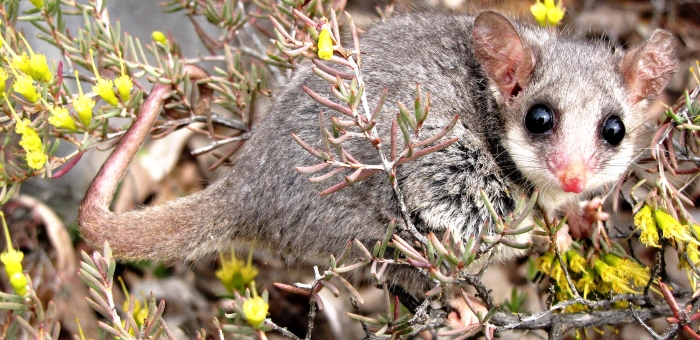Podcast: Play in new window

BOB HIRSHON (host):
Hibernation and fire. I’m Bob Hirshon and this is Science Update.
In southeastern Australia, tiny pygmy possums go into a hibernation-like state called torpor when resources are scarce.
FRITZ GEISER (University of New England, Australia):
So they can drop their body temperature from about 40 degrees Celsius during activity, down to one or two degrees Celsius, like your ground squirrels in North America.
HIRSHON:
That’s University of New England researcher Fritz Geiser. He and his colleagues report in The Science of Nature that the marsupials can wake up from torpor if there’s a wildfire and escape to safety. But only if it’s warm enough.
GEISER:
They can sense smoke at very low temperatures down to about 10 degrees Celsius. But as it gets colder, they respond less spontaneously.
HIRSHON:
Geiser thinks the management strategy of burning forests intentionally during the winter puts pygmy possums and other species that undergo torpor at risk when temperatures dip to near freezing. I’m Bob Hirshon, for AAAS, the science society.
Story by Susanne Bard
